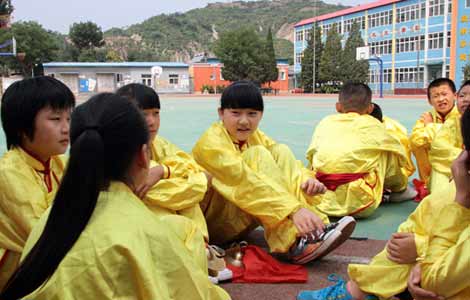Hidden cost of corrupt activity
Updated: 2013-09-02 07:36
(China Daily)
|
|||||||||||
Economics | Ed Zhang
Corruption always has a price tag. But more often than not, the invisible price runs much higher than the visible one.
PetroChina's market value fell $1 billion on the Hong Kong Stock Exchange on Aug 28, after graft allegations were leveled against officials of CNPC, PetroChina's parent company and one of the three State-owned oil and gas giants, and once listed as the world's largest industrial corporation.
Four senior executives were being investigated for corruption and breaches of discipline, it was announced, one of whom was promoted only a month ago.
Chinese-language media quoted staff in CNPC's headquarters as saying they had had no inkling of the allegations before they were made public.
The $1 billion fall in valuation that the company suffered on Aug 28 is just a part of the damage PetroChina has suffered. Any company whose top executives faced such serious charges would need a lot of time and effort to get back on track.
In a large State-owned enterprise the pain would be felt longer because the executives have to be appointed administratively.
PetroChina's painful rebuilding process has only just begun. China Mobile, one of China's largest telecommunications giants, has been going through such a process since 2009. Fourteen of its senior executives, one after another, have been accused of corruption.
In the meantime, even though China Mobile grew fantastically in previous years and turned in sterling stock market performances as the country's mobile telecommunications developed rapidly, the company has underperformed in technological breakthroughs and financial results over the past few years.
Too many internal problems prevent it from making the most of its resources and competing with its rivals in the way it should, investors have said.
Corruption clearly exacts much more than a one-time, short-term cost on the company involved. In China it can paralyze the largest industrial and financial organization and damage the economy - in addition to severely undermining the confidence of investors. In short, corruption can damage a company far more than its worst enemies could hope to do.
Indeed, it is corruption that is China's worst enemy. No developing country can think about sustainable progress and of taking its place among the respectable economic systems of the world unless it is effective in rooting out corruption.
The cases of PetroChina and China Mobile suggest the country still has a lot more to do in that regard.
That is why the latest meeting of thePolitical Bureau of the Communist Party of China Central Committee, a communique about which was issued on Aug 27, deserves so much attention. The report came out a day after the trial of Bo Xilai, former Politburo member and Party chief of Chongqing. It contained extensive discussion about corruption at a level not seen in a Political Bureau communique for many a year.
Of course, over the years officials have been exposed, tried and sent to prison, but the level of candor is new, as is the degree of emphasis on a "systematic solution" to balance "punishment and prevention".
The Political Bureau pledged to build a system in which officials "dare not be corrupted, cannot be corrupted and are not easily corrupted".
Now that an internal campaign is going on in all government organizations and SOEs to crack down on graft, all publicly listed SOEs may be going through a rugged patch with investor relations.
That means they need to: be prompt in keeping investors informed about the campaign inside their companies; be prepared to re-introduce to the public their top executives once they are proven to be clean; and convey to investors the top executives' pledge of good moral standards and lawful business dealings.
Should investigators find that any top executives have a case to answer, companies should promptly appoint acting managers.
It is in the interest of the SOEs, investors and the country at large to quickly rebuild trust and mend their public image.
The author is editor-at-large of China Daily. Contact the writer at edzhang@chinadaily.com.cn.
(China Daily 09/02/2013 page20)
Today's Top News
Beijing tightens vehicle emission controls against PM 2.5
Experts: US unwise to wage war on Assad
Eurasian nations focus on Net
Trending news across China
Merkel in TV debate with rival
Manufacturing sees quick expansion
Sowing the seeds of sustained growth
SASAC head in graft probe
Hot Topics
Lunar probe , China growth forecasts, Emission rules get tougher, China seen through 'colored lens', International board,
Editor's Picks

|

|

|

|

|

|





